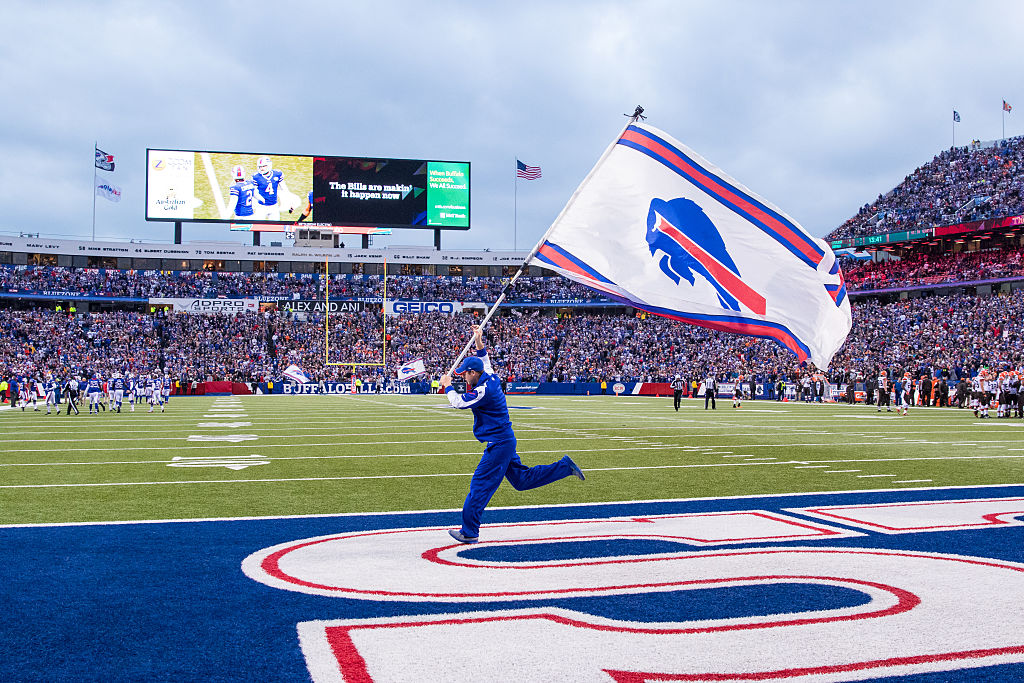The Bears owner is not the only beneficiary of this $7 billion stadium and complex. It provides income to local businesses, tax revenue to the city, thousands of jobs, hosts other sporting events and entertainment, concerts, green spaces and recreational facilities for local residents, etc. It will be a major asset to Chicago.
The entire Bears franchise is worth only $6.5 billion. They cannot complete this project without some tax revenue. I will say again that the Bears are putting $2.3 billion into it. Warren is following the same private-public financing plan he used to build the Vikings stadium.
"if you want to inject money into the local economy, it would be better to drop it from a helicopter than invest it in a new ballpark." --Allen Sanderson (an economist at the University of Chicago who does research on sports economics)
If the owners can't get investors to put up the money for the stadium, it's because the investors do the due diligence and see that it's a terrible investment and then they won't put up the money. If it were a good investment, the billionaire con men wouldn't "need" to steal billions of dollars more from regular people to complete the project.
If they can't get funding for the whole project they want to do, then why not have a smaller project?
The idea that billionaires "need" public funding to make a stadium is absurd. It's horrifying to me how many people swallow this.
The pro-sports franchises always sell states and cities a bill of goods of supposedly bringing in lots of additional revenue for local businesses and creating additional jobs, but I've never seen a study that shows anything but
possibly cannibalization of the markets of some businesses in the city by others. Find me a study that shows a net benefit from stadium construction, and you've found the Holy Grail the owners with all their billions haven't been able to falsify so far.
Every pre-construction study funded by the billionaires who want the multi-billion-dollar present from their slaves says the stadium will pump the city's economy. Every academic study (where the methods and results are subject to peer review by academic economists) and post-mortem shows that the giveaway always ends up being a net loss for the government and the people whose money it is using.
One interesting thing in the academic papers about this subject is how frequently they mention that the generally accepted conclusion among economists is that professional-sports stadia are terrible ways to use public money. I've linked a bunch of studies (and attached one I managed to find as a file, but not available via a web interface) below.
Regular people funding billionaires' stadia is nothing but "reverse Robin Hood."
=========================
Local governments routinely subsidize sports stadiums and arenas using the justification that hosting professional franchises produces economic development and
papers.ssrn.com
=========================
Here's a summary of that article for non-academics.
If you're only going to look at one of the articles linked here, look at this one. It's pretty good at dismantling one-by-one every aspect of the owners' lies being forced down your throat by their buddies in the media:
Here's what anyone debating public financing for a sports stadium needs to know to combat half truths and exaggerations.

globalsportmatters.com
=========================
=========================
I couldn't find one article available via web free, but I found a PDF reprint
I'm attaching a PDF of a study showing that any positive effect on employment and earnings is cannibalization. It will probably show up at the bottom of this comment. Its title is "The effect of professional sports on earnings and employment in the services and retail sectors in US cities."
=========================
Here's an article for laypersons written by one of the pioneers in solid economic analysis of professional sports teams and stadia:
Local governments have spent hundreds of millions of dollars in public subsidies for professional sports facilities over the past 70 years. What explains this?

econofact.org
Zimbalist makes an interesting point in that one that I've been failing to mention: the opportunity cost. If the local governments invested those billions in infrastructure projects like roads, public transport, airports, education and job training, even child-care programs, the expected return on investment could be positive, unlike the virtually guaranteed negative return on giving people's money to a billionaire.
=========================
Here's an academic article by Zimbalist from the aughts:
The Economics of Sports Facilities and Their Communities by John J. Siegfried and Andrew Zimbalist. Published in volume 14, issue 3, pages 95-114 of Journal of Economic Perspectives, Summer 2000, Abstract: Since the 1950s, taxpayers have been the primary investors in stadia built for the use of...
www.aeaweb.org
=========================
Local governments routinely subsidize sports stadiums and arenas using the justification that hosting professional franchises produces economic development and
papers.ssrn.com



